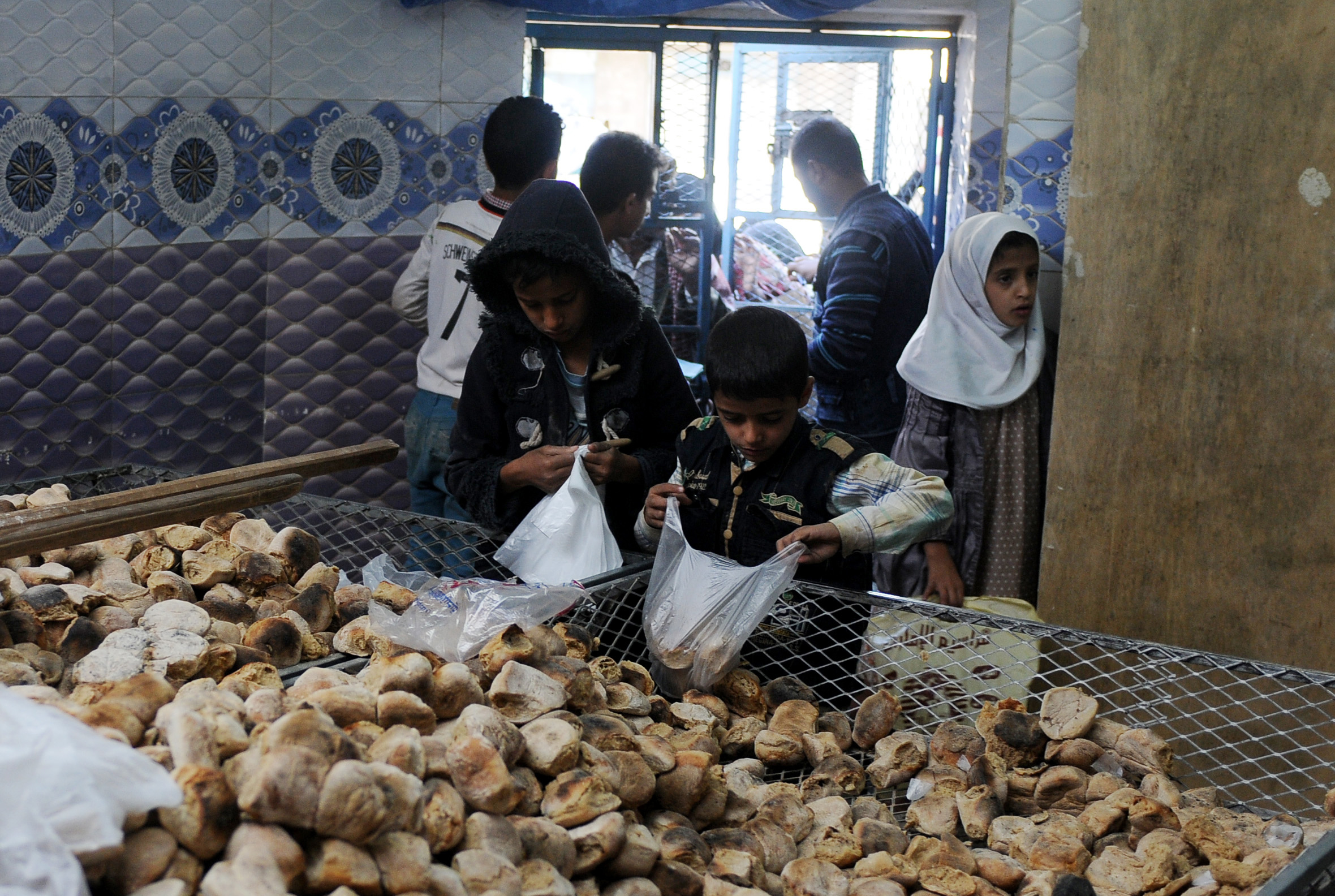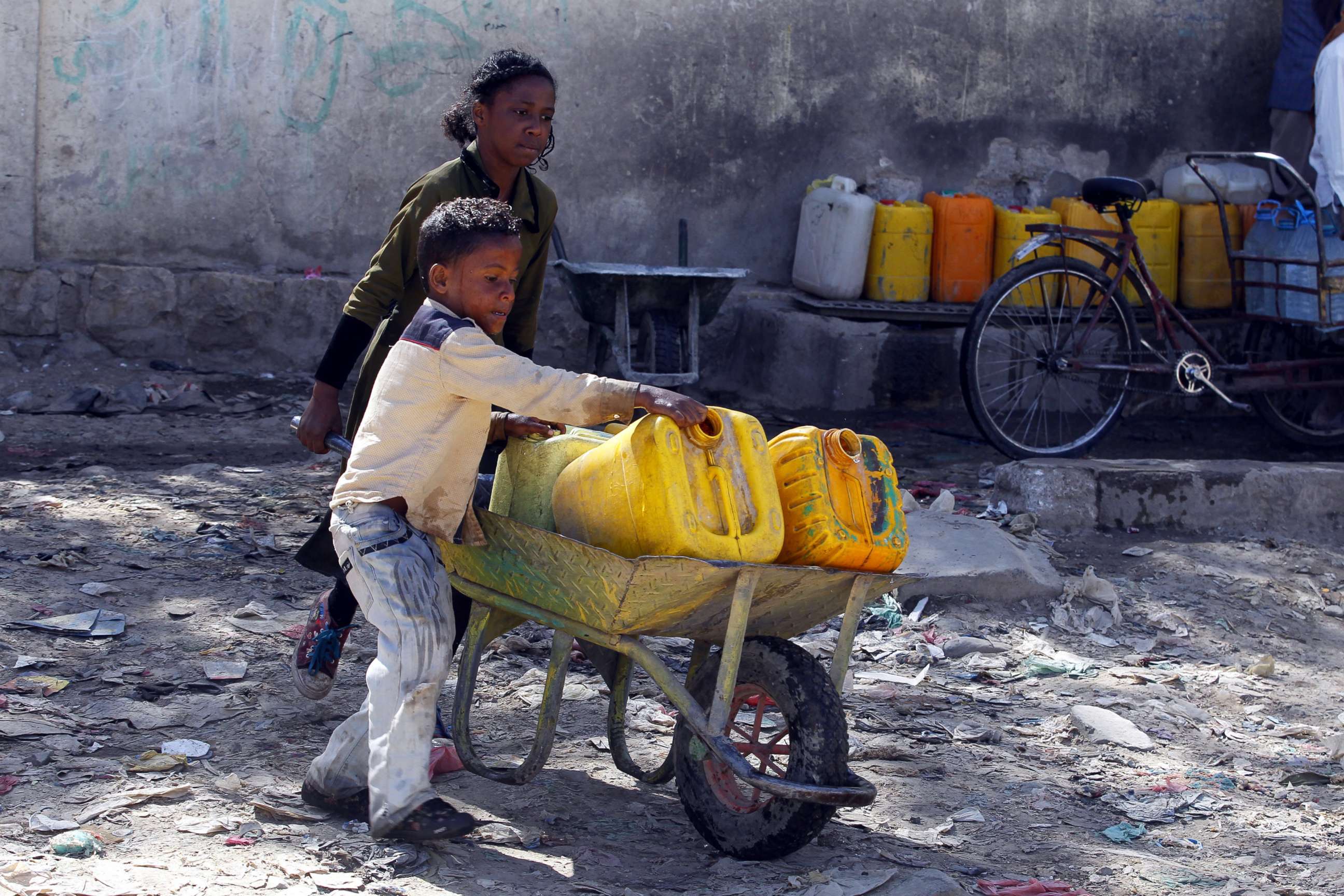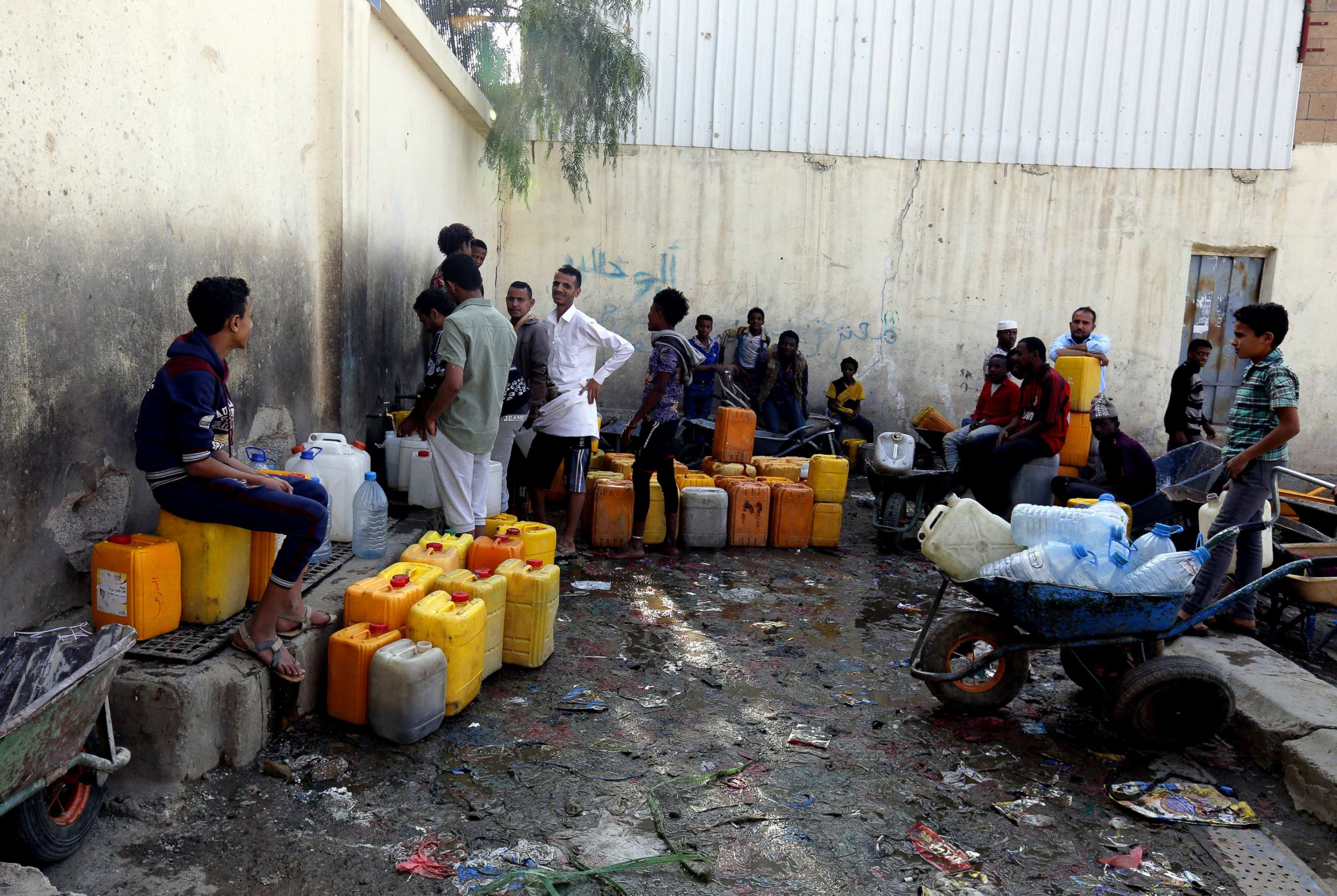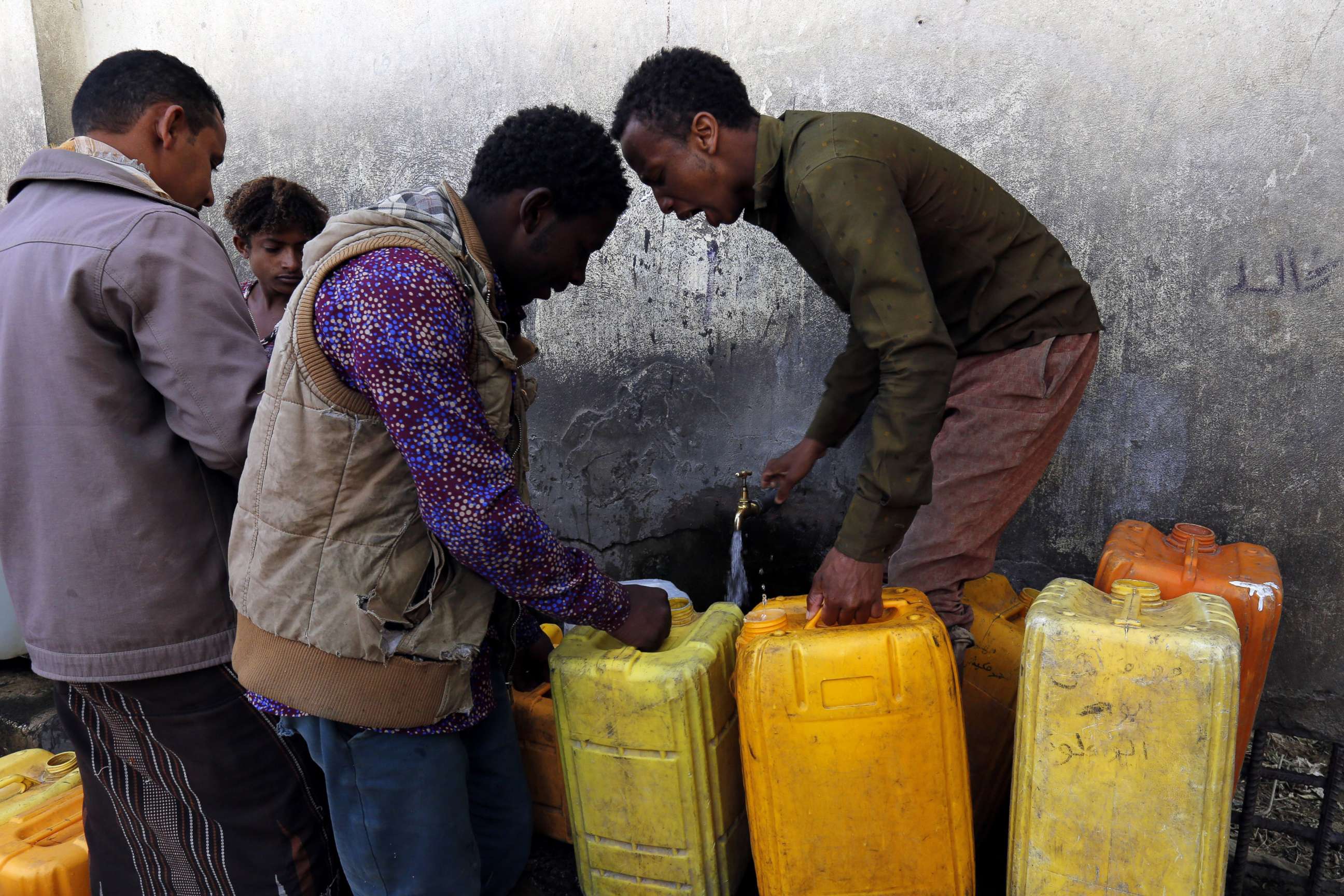Yemen's cities running out of fuel and clean water in 'imminent catastrophe,' UN says
"This imminent catastrophe is entirely avoidable," top officials said.
— -- A Saudi-led coalition fighting Yemeni rebels eased an air, land, and sea blockade of Yemen a week ago, but it is still keeping commercial ships with food and fuel from docking and unloading their cargo in the country, putting millions at risk of starving, the United Nations said this weekend.
Millions of Yemenis depend on those supplies, and without fuel, health and water facilities can’t run. So Yemen’s cities are running out of clean water, the chiefs of several United Nations agencies and other top humanitarian officials said in a statement Saturday.
“Urban water networks in seven cities have run out of fuel and now depend on humanitarian organizations to fill in the gap,” the officials said. “Other cities will shortly be in a similar situation if the blockade is not lifted, which would leave 11 million people without safe water.”
A lack of commercial imports coming through Yemen’s Red Sea ports could push three million more people into starvation, they said.

“This imminent catastrophe is entirely avoidable,” the officials said.
More broadly, they said, nearly 400,000 children in Yemen suffer from severe acute malnutrition and more than eight million Yemenis “could starve without urgent food assistance coming into Yemen,” they said.
The first flight carrying humanitarian aid landed in Sanaa last weekend following a nearly three-week-long blockade by the Saudi-led coalition fighting Houthi rebels who have taken over much of Yemen, aid groups said. A ship carrying aid was able to dock a couple days later, and other shipments have made it through as well, the groups said.

But continued restrictions on commercial food and fuel imports have devastated markets and driven up prices for millions of Yemenis who do not receive humanitarian aid, putting them at risk, aid groups said. Yemen imports nearly all of its food.
The lack of fuel would lead to a “new crisis” that would compound other issues, like lack of access to clean water, UNICEF’s representative in Yemen, Meritxell Relano, told ABC News. The average price of diesel in Yemen has risen 99 percent since September, and the average price of petrol had gone up 71 percent in that period, she said last week.
“The ports need to be open so the commercial goods can come in and the markets can be activated,” Relano said. “The people cannot exist alone on food aid.”
In some areas, the price of trucked-in water has jumped 600 percent, the price of wheat flour had gone up 30 percent, and the price of wheat flour had risen 30 percent, the UN and aid officials said in their statement Saturday, without giving a timeframe.

Without fuel and water, more hospitals and health center will shut down -- less than half are currently operating -- and six cities’ sewage networks have already been compromised, the officials said.
“It’s critical that shipments of commercial food continue,” the Yemen country director for the U.N.'s World Food Programme, Stephen Anderson, told ABC News last week, “and it’s also essential that humanitarian supplies are able to flow without delays.”
All the partial lifting of the blockade on Yemen’s ports on its Red Sea coast has done, the officials said Saturday, was to “slow the collapse towards a massive humanitarian tragedy costing millions of lives.”
The statement was issued by the heads of the WFP, the World Health Organization, the United Nations Development Programme, the United Nations Children's Fund (UNICEF), and the International Organization for Migration, as well as the United Nations’ high commissioner for refugees and under-secretary-general for humanitarian affairs and emergency relief coordinator.





